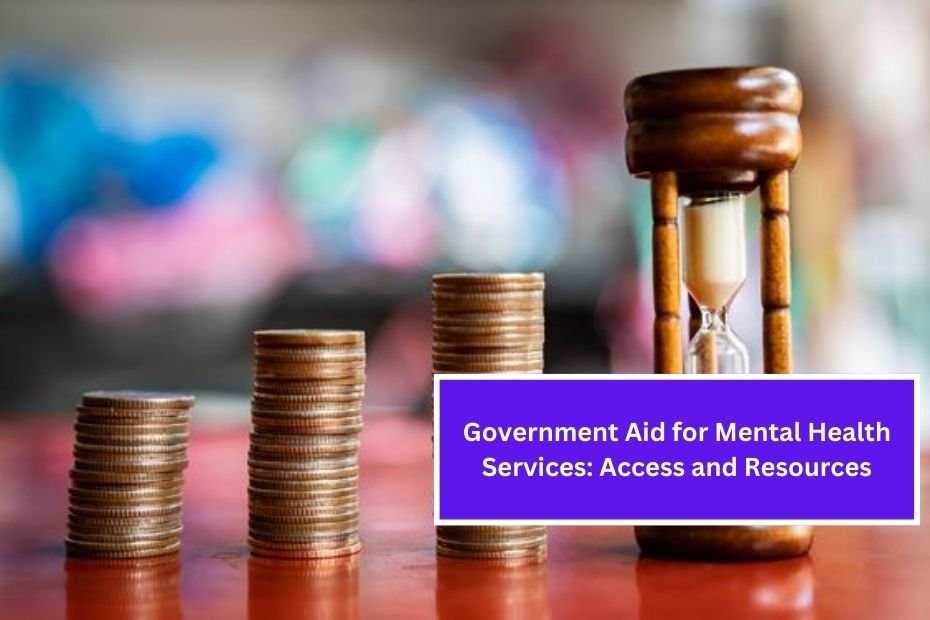Mental health is a critical part of our overall well-being, yet many people struggle to access the help they need. The government provides various forms of aid to ensure that mental health services are available to everyone. In this article, we will explore the types of government aid available, how to access these resources, and the importance of mental health support.
Introduction
Mental health issues affect millions of people across the globe. Conditions like depression, anxiety, and bipolar disorder can make daily life challenging. Fortunately, government aid plays a vital role in supporting individuals seeking mental health care. This aid can come in various forms, including financial assistance, programs, and resources that make mental health services more accessible. Understanding these resources is essential for anyone who may need help.
Understanding Mental Health
What is Mental Health?
Mental health refers to our emotional, psychological, and social well-being. It affects how we think, feel, and act. Good mental health is crucial for coping with stress, relating to others, and making choices. Conversely, poor mental health can lead to difficulties in everyday life, work, and relationships.
Why is Mental Health Important?
Mental health is just as important as physical health. It influences how we handle stress, relate to others, and make decisions. Mental health issues can impact every aspect of life, including work, family, and friendships. By prioritizing mental health, we can lead healthier, more fulfilling lives.
Types of Government Aid for Mental Health Services
1. Medicaid
Medicaid is a government program that provides health coverage for low-income individuals and families. It covers a range of mental health services, including:
- Therapy and Counseling: Medicaid often covers individual and group therapy sessions.
- Medication Management: Many mental health medications are covered under Medicaid.
- Inpatient Care: In severe cases, hospitalization may be necessary, and Medicaid can help cover these costs.
How to Access Medicaid
To apply for Medicaid, you need to:
- Check Eligibility: Eligibility varies by state, but generally, you must meet income and asset requirements.
- Fill Out an Application: You can apply online, by mail, or in person at your local Medicaid office.
- Provide Documentation: You may need to submit proof of income, residency, and other necessary documents.
2. Medicare
Medicare is a federal health insurance program primarily for individuals aged 65 and older. It also covers certain younger individuals with disabilities. Medicare covers mental health services such as:
- Outpatient Therapy: Medicare Part B covers therapy and counseling sessions with licensed professionals.
- Inpatient Mental Health Care: Medicare Part A covers hospital stays for mental health treatment.
How to Access Medicare
To access Medicare:
- Determine Eligibility: You typically qualify if you are 65 or older, have a disability, or have certain diseases.
- Sign Up: Enrollment can occur three months before your 65th birthday. You can sign up online or visit your local Social Security office.
- Choose a Plan: Depending on your needs, you may opt for additional coverage, such as Medicare Advantage or a Medigap plan.
3. Community Mental Health Centers
The government funds community mental health centers to provide care and support. These centers offer various services, including:
- Counseling and Therapy: Many centers provide free or low-cost therapy.
- Support Groups: These groups help individuals share experiences and gain support from peers.
- Crisis Intervention: Centers often have services available for immediate help in crises.
How to Access Community Mental Health Centers
To find a community mental health center:
- Visit SAMHSA’s Website: The Substance Abuse and Mental Health Services Administration (SAMHSA) has a locator tool to find nearby centers.
- Call Local Resources: Many local health departments can provide information about available centers.
- Contact Centers Directly: If you know a specific center, call them to inquire about services and eligibility.
4. Substance Abuse and Mental Health Services Administration (SAMHSA)
SAMHSA is a federal agency that promotes mental health and substance abuse services. They offer a range of resources, including:
- Treatment Locator: SAMHSA provides a search tool for finding treatment facilities near you.
- Crisis Services: They support various crisis intervention services, such as the National Suicide Prevention Lifeline.
- Public Awareness Campaigns: SAMHSA runs campaigns to raise awareness about mental health issues and available resources.
How to Access SAMHSA Resources
To access SAMHSA resources:
- Visit their Website: Go to SAMHSA’s official site for information and resources.
- Call the National Helpline: You can reach SAMHSA’s helpline at 1-800-662-HELP (4357) for confidential support and information.
5. Veterans Affairs (VA)
For veterans, the Department of Veterans Affairs provides mental health services tailored to their needs. These services include:
- Counseling: The VA offers counseling for PTSD, depression, and other mental health issues.
- Support Groups: Veterans can join support groups to connect with others who have similar experiences.
- Crisis Services: The VA has crisis hotlines and emergency services for veterans in distress.
How to Access VA Services
To access VA mental health services:
- Enroll in VA Health Care: You must apply for VA health care benefits.
- Visit a Local VA Facility: Find your nearest VA medical center or clinic.
- Call the Veterans Crisis Line: For immediate help, veterans can call 1-800-273-8255 and press 1.
Barriers to Accessing Mental Health Services
Despite available government aid, many individuals still face barriers when trying to access mental health services. These barriers can include:
1. Stigma
Stigma surrounding mental health can prevent individuals from seeking help. Many people feel embarrassed or ashamed about their mental health issues, which can hinder access to care.
2. Lack of Awareness
Some individuals may not be aware of the resources available to them. This lack of information can prevent them from accessing necessary services.
3. Financial Constraints
While government aid exists, some individuals may still face financial barriers, such as co-pays or deductibles, which can deter them from seeking care.
4. Shortage of Providers
In some areas, there may be a shortage of mental health professionals. This shortage can lead to long wait times for appointments and reduced access to care.
Overcoming Barriers to Access
To overcome these barriers, individuals can take several steps:
1. Educate Yourself
Learning about mental health and available resources can empower individuals to seek help. Many organizations provide free resources and information online.
2. Reach Out for Support
Talking to friends, family, or support groups can help individuals feel less isolated. Sharing experiences can reduce stigma and encourage seeking help.
3. Utilize Telehealth Services
Telehealth has become increasingly popular, allowing individuals to access mental health services from the comfort of their homes. Many providers offer virtual therapy sessions.
4. Advocate for Yourself
If you encounter barriers when seeking help, advocate for your needs. This may involve communicating openly with healthcare providers or seeking alternative resources.
Conclusion
Government aid for mental health services plays a crucial role in ensuring that individuals have access to the care they need. Programs like Medicaid, Medicare, community mental health centers, and VA services provide essential support for those facing mental health challenges. By understanding these resources and overcoming barriers, individuals can take significant steps toward improving their mental health.
Mental health is a vital aspect of overall well-being. Seeking help is a sign of strength, not weakness. If you or someone you know is struggling with mental health issues, remember that help is available. Take the first step by reaching out to a healthcare provider, contacting a community center, or calling a mental health helpline. Together, we can work towards a world where mental health care is accessible to all, fostering a healthier, happier society.

